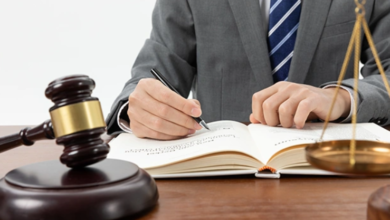What You Need to Know About ARS Disorderly Conduct

Ars Disorderly Conduct is a common legal charge that can have serious consequences for those who are accused of it. Understanding what constitutes ARS disorderly conduct and what to do if you are facing this charge is significant to handling potential repercussions effectively.
Did you know that according to ARS 13-2904, disorderly conduct can be categorized as either a felony or a misdemeanor, depending on the circumstances?
From public disturbances to offensive behavior, the scope of ARS disorderly conduct is broad and requires careful consideration. Understanding the definition, examples, penalties, defenses, and the right steps can empower you to safeguard your rights and make informed choices.
Definition of ARS Disorderly Conduct
When dealing with ARS disorderly conduct, you must understand its precise definition.
ARS Disorderly Conduct refers to any action or behavior that disrupts the peace and order within the community. This includes but isn’t limited to harassment, hate speech, excessive trolling, spreading misinformation to incite conflict, and any other behavior that creates a hostile environment for other members.
It is important to understand that ARS disorderly conduct can manifest in many ways, some of which may be clear while others are more subtle. Attacking individuals directly, making inflammatory comments, or consistently disrupting conversations are all examples of disorderly behavior. Actions that go against the community guidelines, like making threats, violence, or misleading others on purpose, are seen as serious cases of disorderly behavior.
For more detailed information on handling such situations, visit www.jamespaynelaw.com.
Examples of Disorderly Conduct Actions
Examples of disorderly conduct actions include behaviors that disrupt the peace and order within the Ars community. Engaging in fighting or pushing violates the community’s standards.
Yelling, screaming, or using hurtful words in a public space can be seen as disruptive behavior. Intentionally causing loud disturbances, like playing loud music late at night, falls under this category as well.
Vandalizing property, defacing public spaces, or littering can also be considered disorderly conduct. Not following the guidance of Ars officials or causing interruptions during organized events may result in charges for disorderly conduct.
Other examples include being publicly intoxicated, exposing oneself inappropriately, or engaging in any actions that could endanger the safety and well-being of others. It is important to recognize that these actions disrupt the peace we all cherish and undermine the community spirit and respect that Ars strives to uphold.
Read also: Hiring a Commercial Lawyer in Sydney: When and How to Do It
Potential Penalties for Disorderly Conduct
Facing disorderly conduct charges within the Ars community can result in various penalties that may include fines, community service, or even potential legal consequences.
If you are found guilty, there’s a chance you could face a fine and even jail time as a result of what you’ve done. Arizona classifies disorderly conduct as a class 1 misdemeanor or class 6 felony, depending on the circumstances of the case. But most of the disorderly conduct charges are classified as misdemeanors, which can result in up to six months in jail and up to a $2,500 fine; this may also include victim compensation.
However, in more serious cases, disorderly conduct charges could lead to potential legal consequences such as probation or even jail time. A person may face a felony disorderly conduct charge for recklessly handling, displaying, or discharging a deadly or dangerous weapon. For a first-time felony offense under ARS 13-2904, the consequences can range from four months to two years in prison, along with potential fines reaching up to $150,000.
Legal Defenses for Disorderly Conduct Charges
To defend against disorderly conduct charges, you must understand the potential legal defenses available.
One common defense is arguing that your actions didn’t meet the legal definition of disorderly conduct. This means demonstrating that your behavior was calm, orderly, and respectful. Another defense might involve showing that you did not realize your actions would upset or inconvenience anyone. A lack of intent can serve as a solid defense against disorderly conduct charges.
If your actions were protected by the First Amendment, such as engaging in peaceful protests or expressing your opinions, this could also be used as a defense.
Consulting with a knowledgeable attorney specializing in disorderly conduct cases can help you handle the legal process and build a strong defense strategy.
Steps to Take When Facing Disorderly Conduct Charges
When facing disorderly conduct charges, it is important to stay calm and collect all the relevant details about what happened. Stay composed and avoid escalating the situation further. When law enforcement is involved, it is important to work with them while being careful not to admit guilt or share more information than needed.
Pay attention to any witnesses present and collect their contact information if possible. Refrain from arguing with the authorities, as it can worsen the circumstances. Once the situation has de-escalated, consider seeking legal advice from a qualified attorney specializing in disorderly conduct cases.
Your attorney can guide you on the best approach and represent your interests in court. Remember to document everything related to the incident, including any communication with law enforcement or others involved.
Conclusion
Understanding ARS disorderly conduct is crucial for anyone who is facing such charges. This offense encompasses a wide range of behaviors that disrupt public peace and order, and the consequences can be severe, ranging from fines and community service to jail time.
By knowing the definition, examples, potential penalties, and legal defenses, you can make an informed decision.
Remember, if you find yourself accused of disorderly conduct, staying calm, gathering information, and seeking legal counsel are essential steps to protect your rights and achieve the best possible outcome.




